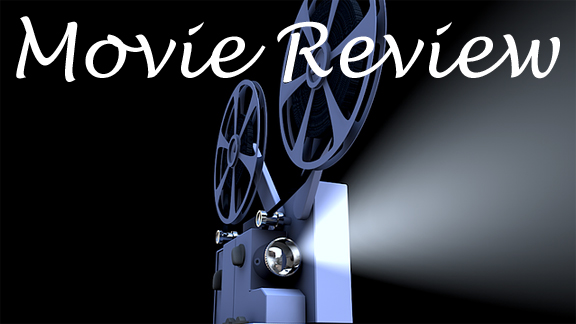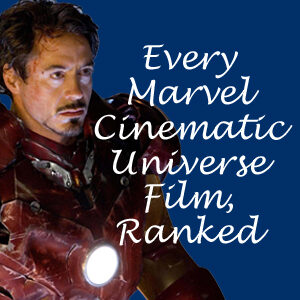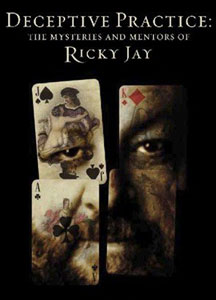Scrolling through options under a “David Mamet” search on my Roku, “Deceptive Practice: The Mysteries and Mentors of Ricky Jay” (2012) comes up a lot. (It’s currently available for free with ads on Vudu.) It’s only tangential to Mamet, who is one of the interview subjects in the documentary. But Jay (1946-2018), like Mamet, is fascinating to listen to when he talks about his craft, so this will likely be of interest to both Mamet fans and magic fans.
Mostly about magic’s history
I get the sense that Jay, whose acting career took off with Mamet’s “House of Games” (1987) and whose last role was in the 2019 season of “Sneaky Pete,” wouldn’t agree to do a documentary solely about himself and his magic act, as “Deceptive Practice” is mostly about the history of the art form.
In particular, sleight-of-hand masters Dai Vernon and Charlie Miller – both mentors to Jay – get a lot of attention. The filmmakers do a great job of digging up archival footage of those legends’ performances and guest spots on variety shows; the movie plays like an engrossing time capsule.

“Deceptive Practice: The Mysteries and Mentors of Ricky Jay” (2012)
Director: Molly Bernstein
Stars: Ricky Jay, Winston Simone, Dick Cavett
Director Molly Bernstein does a respectable job of making this 90-minute doc consistently engaging without revealing any secrets of how magic is done. It’s like a magic show itself in that way. The closest we get is when Jay recounts Vernon watching men put on their coats outside a coat-and-tie dinner club. Vernon is studying subconscious, natural motion, as that is the stock in trade of a sleight-of-hand artist: Make “natural” motions that disguise what you’re really doing.
Secrets are something of both value and frustration in the magic world, as Jay notes that even magicians who are close friends don’t regularly reveal secrets to each other. If you’re like me, though, you don’t really want to know how these tricks are done; you may think for a moment that you do, but really, you want to be amazed.
What’s more disappointing is that Jay’s life story is only teased in “Deceptive Practice.” We learn that he left his parents’ house as a teenager and never went back. Yet his one specific story of his parents – when they hire boardwalk legend Al Flosso to perform at his birthday party – is positive, so this leaves a tantalizing question of how that relationship could be so monumentally sour.
The ups and downs of the industry
Through the 20th century, there were periods when magicians could make a great living and periods where they made almost no money, yet the film doesn’t give us the payoff of learning how successful Jay became. He obviously wasn’t living on the streets, but I don’t get a good sense of the level of his success. Bernstein interviews him in many locations, from dressing rooms to a seat at a green-felt card table, and this is a warm touch in addition to illustrating Jay’s vagabond aesthetic.

Some interviewees mention Jay’s irascible, sometimes scary, temper as if it’s widely known. That doesn’t fit with the Jay on screen, who openly and articulately talks about his craft. Clips from earlier in his career show a large, long-haired man, a visage that works well for playing toughs in Mamet films.
Yet even on those variety shows, Jay gives the air of a loveable oaf at worst. And when he flings cards so they knock over full beer cans or stick in the sides of watermelons, he’s a crowd-pleasing showman.
The Mamet-directed “Ricky Jay and His 52 Assistants” (1996), Jay’s stage performance/conversation converted into an HBO special, hasn’t been made available since its original airing. So it’s nice to have this documentary, which indeed includes some clips from that show. Still, with Jay’s death last year, it seems likely he took some secrets to his grave, perhaps not all of them related to his career.

